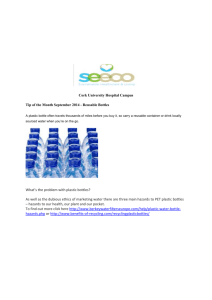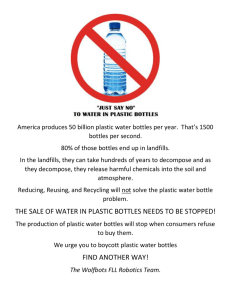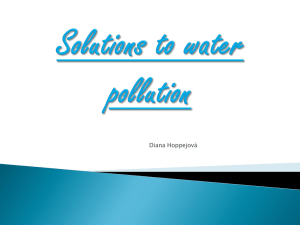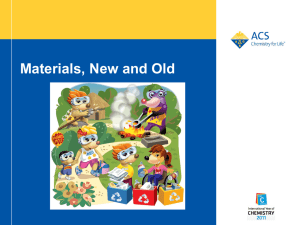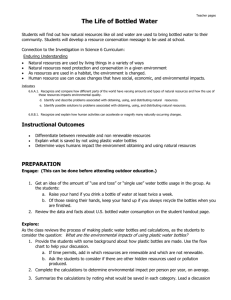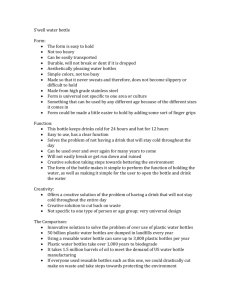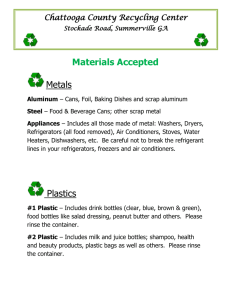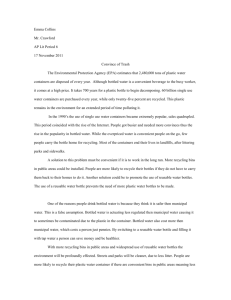Drinking Water: Bottled or From the Tap
advertisement
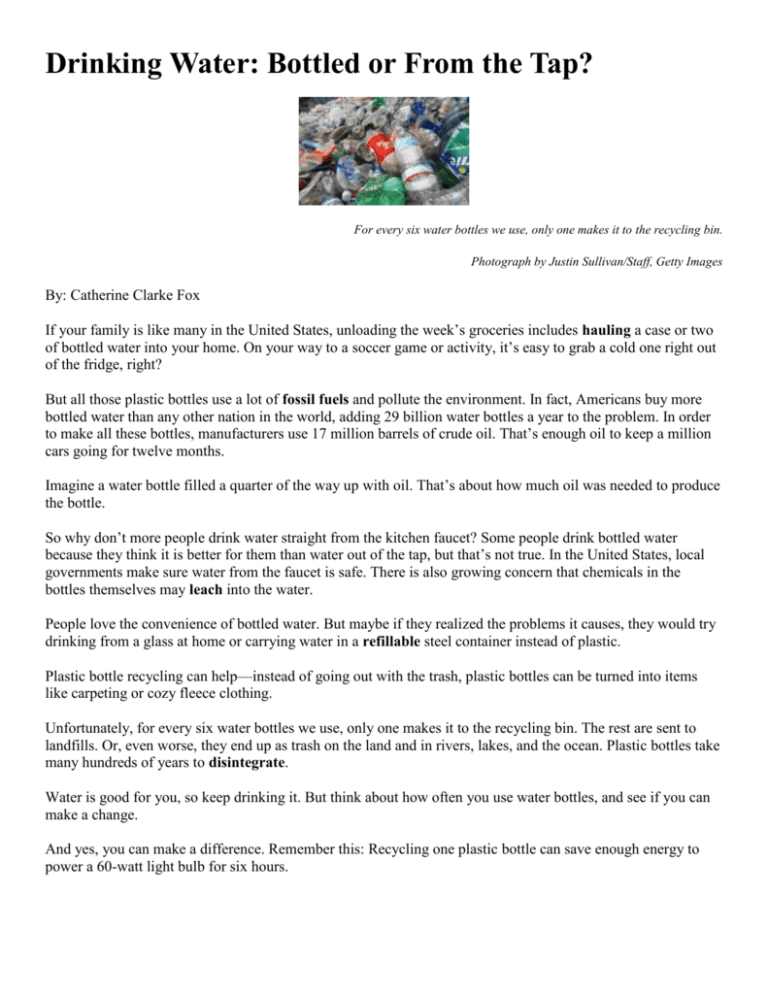
Drinking Water: Bottled or From the Tap? For every six water bottles we use, only one makes it to the recycling bin. Photograph by Justin Sullivan/Staff, Getty Images By: Catherine Clarke Fox If your family is like many in the United States, unloading the week’s groceries includes hauling a case or two of bottled water into your home. On your way to a soccer game or activity, it’s easy to grab a cold one right out of the fridge, right? But all those plastic bottles use a lot of fossil fuels and pollute the environment. In fact, Americans buy more bottled water than any other nation in the world, adding 29 billion water bottles a year to the problem. In order to make all these bottles, manufacturers use 17 million barrels of crude oil. That’s enough oil to keep a million cars going for twelve months. Imagine a water bottle filled a quarter of the way up with oil. That’s about how much oil was needed to produce the bottle. So why don’t more people drink water straight from the kitchen faucet? Some people drink bottled water because they think it is better for them than water out of the tap, but that’s not true. In the United States, local governments make sure water from the faucet is safe. There is also growing concern that chemicals in the bottles themselves may leach into the water. People love the convenience of bottled water. But maybe if they realized the problems it causes, they would try drinking from a glass at home or carrying water in a refillable steel container instead of plastic. Plastic bottle recycling can help—instead of going out with the trash, plastic bottles can be turned into items like carpeting or cozy fleece clothing. Unfortunately, for every six water bottles we use, only one makes it to the recycling bin. The rest are sent to landfills. Or, even worse, they end up as trash on the land and in rivers, lakes, and the ocean. Plastic bottles take many hundreds of years to disintegrate. Water is good for you, so keep drinking it. But think about how often you use water bottles, and see if you can make a change. And yes, you can make a difference. Remember this: Recycling one plastic bottle can save enough energy to power a 60-watt light bulb for six hours. Vocabulary disintegrate (v.) To decay or breakdown From the article: “Plastic bottles take many hundreds of years to disintegrate.” refillable (adj.) Refillable means that a container has the ability to be filled again. Base word: fill (v.) to make full; put as much as can be held into: to fill a jar with water. -Prefix re- means to do something again. (Example: to replay a video means to watch the video again.) -Suffix –able means that something has an ability. (Example: A game that is playable means that it can be played.) From the article: “But maybe if they realized the problems it causes, they would try drinking from a glass at home or carrying water in a refillable steel container instead of plastic.” leach (v.) To leach means to get through a barrier. From the article: “There is also growing concern that chemicals in the bottles themselves may leach into the water.” fossil fuels (n.) Remains of ancient plants and animals that have turned into coal, oil, or natural gas. In Ohio, we burn the fossil fuel coal for electricity. Another fossil fuel, oil, is used to make plastic. Fossil fuels are non-renewable resources. Once we use them, they are gon.e From the article: “But all those plastic bottles use a lot of fossil fuels and pollute the environment.” hauling (v.) Base word: haul To haul means to pull or carry something. From the article: “If your family is like many in the United States, unloading the week’s groceries includes hauling a case or two of bottled water into your home.”
